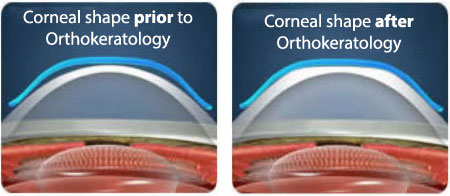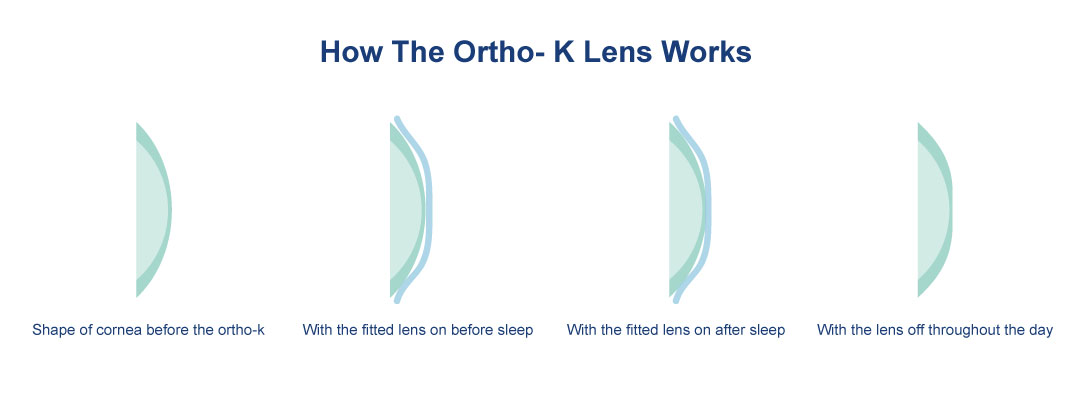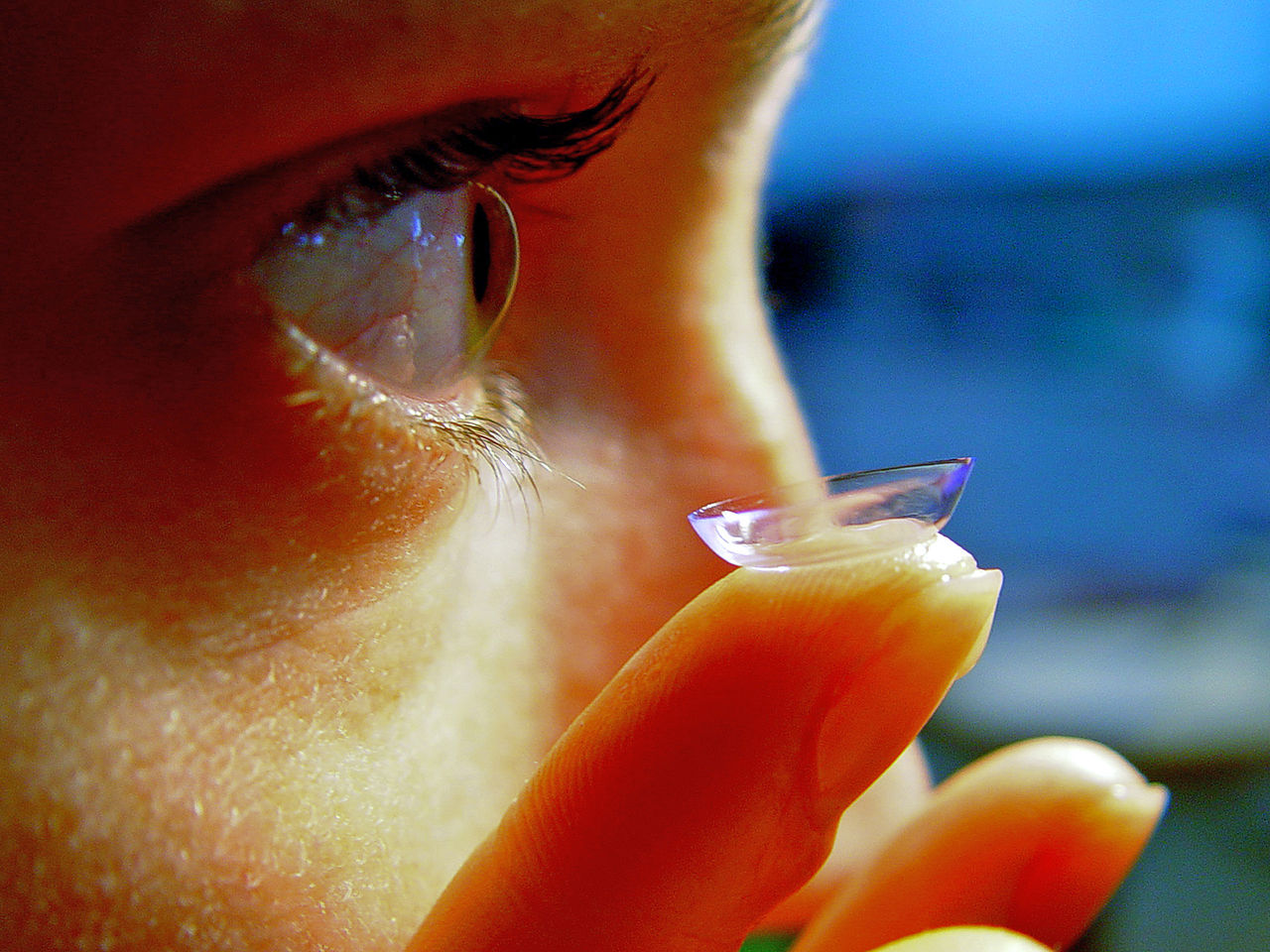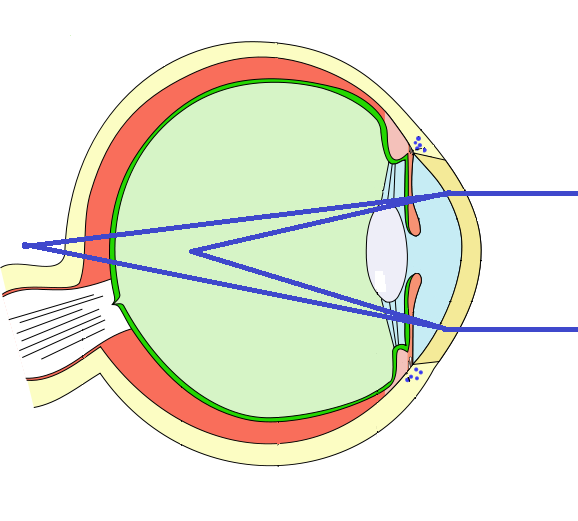Ortho K contacts, or orthokeratology contacts, have been around for a long time. You may have heard of them or read about about them somewhere, and wondered if Ortho K contacts are for you. In this article I will discuss Ortho K lenses to help you decide if you are the right candidate for them.
What is Ortho K?
Ortho k stands for orthokeratology. The prefix ortho means “straight”, “correct” or “right”. Keratology simply refers to the cornea of the eye. Orthokeratology is the science of trying to correct the shape of the cornea using contact lenses.
Orthokeratology employs the use of hard contact lenses to change the shape of the cornea. In order for the contact lenses to have an effect, they must be worn overnight and removed during the day. Doing so will change the shape of your cornea (usually flatten), and hence change your prescription.
Who will Ortho K contacts work for?
Ortho K contact lenses are not effective for everybody. In order for Ortho K contact lenses to effectively neutralize your prescription, your prescription has to be within a certain range. In general, Ortho K works best for people who’s prescriptions are not stronger than -4.00 (sphere) and who have less than -0.75 (cylinder) of astigmatism.
The stronger your prescription is, the more the Ortho K contacts have to change the shape of your cornea for you to see clearly, which as you can imagine, has its limits.

How often do you have to wear Ortho K lenses?
Most people will have to wear their Ortho K lenses every single night. If they miss a night, their vision will be blurry the following day.
For those who are lucky enough to have very low prescriptions (~ -1.00), they can wear their Ortho K contacts every second night without the effect wearing off. However, going any longer than this will see the effect disappear.
Ortho K Cost
The cost of Ortho K is quite significant. It is nowhere near equivalent to wearing soft disposable contact lenses. There is no fixed cost for Ortho K lenses, as the price is determined and set by the practitioner who fits you. In general, you can expect to play around $2000 for a pair of Ortho K lenses that are good for 1 year.
Keep in mind that for lenses that you keep for up to 1 year, cleaning your lenses is very important. You will need contact lens cleaning solution that is specific to hard contact lenses. Over the course of the year, you can expect to add a couple of hundred dollars in contact lens solution to the cost of Ortho K.
Ortho K Advantages
The best advantage is that you don’t have to wear glasses or contact lenses during the day. During the day, it’s exactly as though you had perfect vision.
Additionally, it has been shown that for children, the use of Ortho K contacts can slow the progression of nearsightedness. I have seen claims that Ortho K can actually ‘cure’ nearsightedness. This is incorrect in the sense that as soon as the Ortho K contacts are discontinued and the effect wears off, and the nearsightedness returns. But it has been shown that children who use Ortho K lenses have prescriptions that progress more slowly than children who simply wear glasses.
For more information about myope and what causes it to advance, click here.
Ortho K Disadvantages
The major disadvantage of Ortho K lenses is that you have to sleep with them every night. Wearing hard contact lenses is not as comfortable as wearing soft contact lenses, but most people get use to it after a few days or weeks. The majority of the time wearing the lenses is spent sleeping, so you’re not even aware that they’re in. It is uncommon for the lenses to keep people up at night or to disrupt sleep.
Another disadvantage is the consequence of missing a night a wear. If you forget to wear them for just 1 night, your vision will be very blurry the next day. Furthermore, it is likely that even your glasses will not help you see clearly, as your prescription will be somewhere between your full prescription (which presumably is in your glasses) and no prescription at all. You can also expect your vision to worsen throughout the day.
If your prescription is very high, even if you remember to wear your Ortho K contacts every day, by the end of the day you might start to notice your vision getting blurry. This is due to the effect of the lenses slowly wearing off. The higher your prescription, the faster the effect of the lenses will wear off.
Ortho K Complications / Ortho K Side Effects
Complications are generally rare from Ortho K since you have to be professionally fit by a specialist, and you are very closely monitored, especially at first.
Years of contact lens wear, whether soft, RGP or Ortho K can lead to certain complications such as giant papillary conjunctivitis, which is irritation of the skin underneath your eyelids.
As with all types of contact lenses, there can be severe consequences to the health of your eyes and your vision if you don’t properly clean your contacts. Lack of proper contact lens care can lead to contamination of your contact lenses which can lead to dangerous eye infections.
Ortho K Risks
Ortho K doesn’t really have many risks. In order to qualify for Ortho K, you have to be examined, approved and monitored by trained specialists who will make sure that no problems arise. If your Ortho K specialist thinks that you won’t be a good candidate, he/she will tell you in order to avoid any possible risks.
Ortho K Providers
To be fit with Ortho K lenses, you have to visit an optometrist. But not every optometrist offers Ortho K in their office. Your eye doctor is the first person you should talk to about Ortho K, and if he/she thinks you are a good candidate for it, he/she can refer you to the nearest optometrist that does Ortho K fittings.
For a directory of Ortho K providers, you can consult this website.
Summary
So are Ortho K contacts for you? They certainly aren’t for everybody. They work best for low to moderate myopes, with little to no astigmatism. You have to be willing and able to wear hard contact lenses over night, and you can’t miss or skip a night. You also have to be diligent with cleaning your contacts every single day. If you think you’d be a good candidate for Ortho K lenses, speak to your optometrist about it.




Leave a Reply